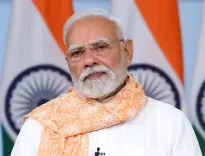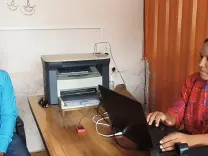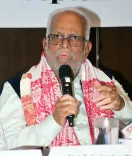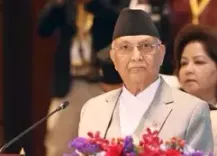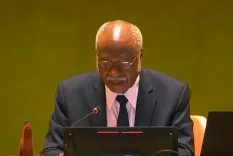Did the SC Refuse Medha Patkar's Plea for New Witness in Defamation Case Against L-G Saxena?
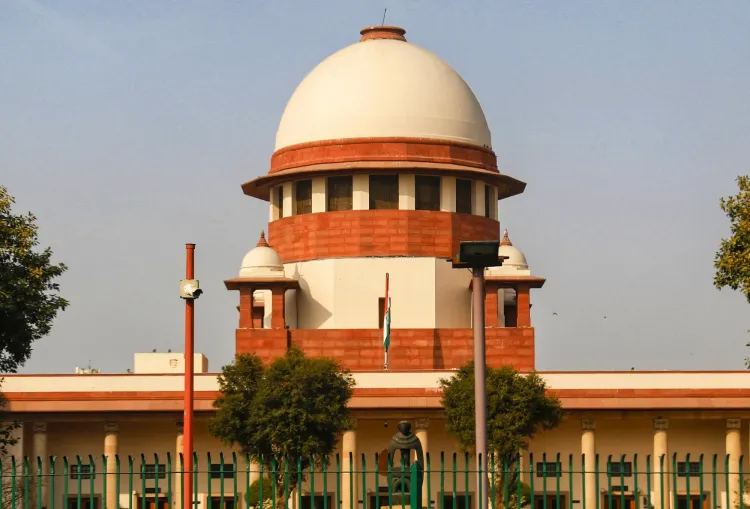
Synopsis
Key Takeaways
- The Supreme Court of India recently declined to entertain Medha Patkar's plea.
- The plea sought to examine a new witness in a long-standing defamation case.
- The case against V.K. Saxena has been ongoing for 24 years.
- The trial faces delays due to various factors, including the pandemic.
- Legal proceedings highlight the challenges of timely justice.
New Delhi, Sep 8 (NationPress) The Supreme Court on Monday declined to entertain a plea from social activist Medha Patkar contesting the Delhi High Court’s refusal to permit her to examine an additional witness in a longstanding defamation case against V.K. Saxena, the current Lt Governor of Delhi.
After a bench comprising Justices M.M. Sundresh and Satish Chandra Sharma indicated its reluctance to intervene in the decision made by the Delhi High Court, Patkar’s counsel requested permission to withdraw the plea, a request the apex court granted.
Senior advocate Maninder Singh, representing Saxena, was present on a caveat alongside advocates Gajinder Kumar and Kiran Jai.
Previously, the Delhi HC upheld a March 18 ruling by the Judicial Magistrate First Class (JMFC), which deemed Patkar’s application a deliberate effort to delay the trial rather than a legitimate need.
The origins of the case date back to December 2000, when Patkar lodged a complaint claiming that a newspaper advertisement from November 10, 2000, was defamatory.
In her complaint, three individuals were named as defendants, including the newspaper's publisher and editor, alongside Saxena.
While proceedings against two of the defendants were quashed following a compromise and apology in 2008, the trial against Saxena continued.
After Saxena pleaded not guilty, Patkar's team began presenting evidence. From 2018 to 2024, four prosecution witnesses, including Patkar, were examined. However, the trial encountered significant delays due to various factors, such as settlement attempts, the Covid-19 pandemic, and numerous adjournments.
This past February, Patkar filed a motion under Section 254(1) of the Criminal Procedure Code (CrPC), seeking the trial court’s approval to examine a new witness not included in the original list.
Judicial Magistrate First Class Raghav Sharma of Saket Courts denied Patkar’s request to summon an additional witness, citing the extensive delay of the case and the timing of her request.
The court noted, “This case has been pending for 24 years, and the complainant has already examined all witnesses listed at the time of filing the complaint.” It highlighted that Patkar had previously submitted an application under Section 254(2) of the CrPC to summon additional witnesses but did not mention the current witness then.
“If this witness were genuinely important to her case, she would have included them in the original list or at least mentioned them in the earlier application,” the order stated.
The court expressed skepticism over the timing of the new witness's emergence, suggesting it raised doubts about the legitimacy of Patkar's request.
In her petition to the Delhi High Court under Article 227 of the Constitution, Patkar contended that the trial court misinterpreted her Section 254(1) application as a Section 254(2) one.
Her counsel further asserted that denying the opportunity to present a willing witness constituted a miscarriage of justice, emphasizing that prior delays were largely due to external factors and not intentional on Patkar's part.
It was underscored that the CrPC does not prevent a complainant from introducing a voluntary witness at a later stage simply because the witness was not listed originally, especially when no court summons was requested.
In opposition, advocate Gajinder Kumar, representing Saxena, argued against Patkar's motion citing delays and procedural misuse. He claimed that the additional witness had not been mentioned in the original list submitted 25 years prior or in any prior examination or cross-examination, asserting that this was an afterthought aimed at addressing weaknesses in Patkar’s case.
Introducing new witnesses at this late stage, Saxena’s counsel contended, would only further extend an already protracted trial.
In a detailed 19-page judgment dated July 29, a single-judge Bench led by Justice Shalinder Kaur of the Delhi High Court recognized the importance of a fair trial but noted that proceedings cannot drag on indefinitely, particularly given the existing backlog in the criminal justice system.
“A review of the petitioner’s application under Section 254(1) to summon a new witness shows that no valid reason has been provided for the failure to produce the proposed witness, Ms. Nandita Narayan,” it stated, adding that the application did not adequately explain the delay in presenting the witness or her relevance at such a late stage.
The Justice Kaur-led Bench noted that while Section 254(1) grants the complainant the right to present evidence, it does not imply unlimited freedom to introduce new witnesses without justification.
Agreeing with the trial court, it asserted that accepting Patkar’s argument would render Section 254(2) meaningless and open the floodgates for endless trial delays, concluding that the trial court had “correctly interpreted” the provisions of Sections 254(1) and 254(2) of the CrPC.
In dismissing Patkar’s petition, the Delhi HC remarked, “The Impugned Order has thoroughly evaluated the petitioner’s arguments, harmonized legal interpretation, and taken into account the extensive pendency and past conduct to arrive at a legally sound conclusion.”


